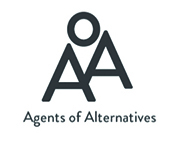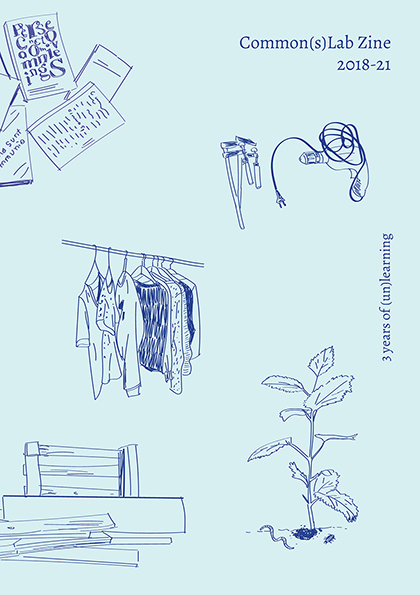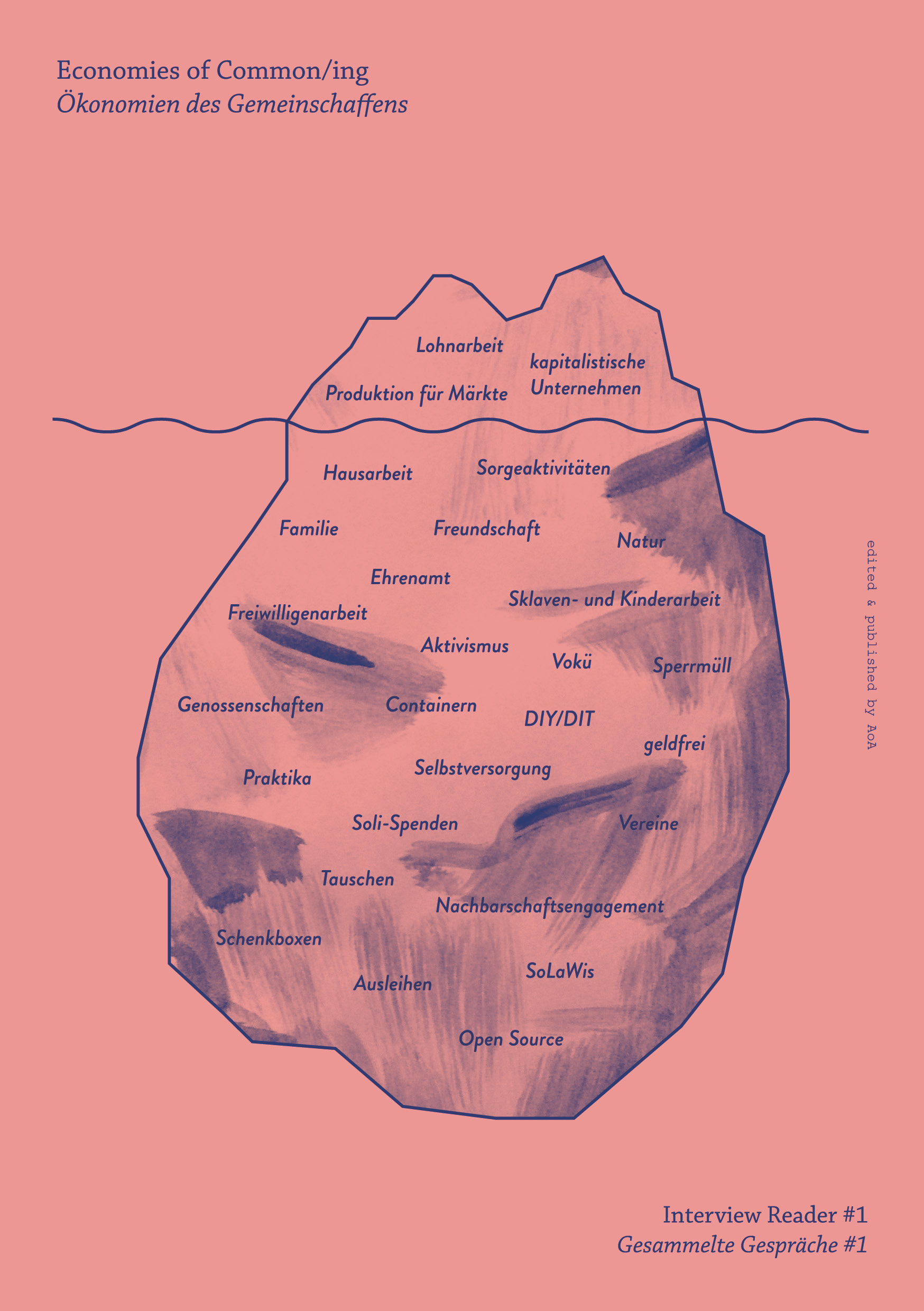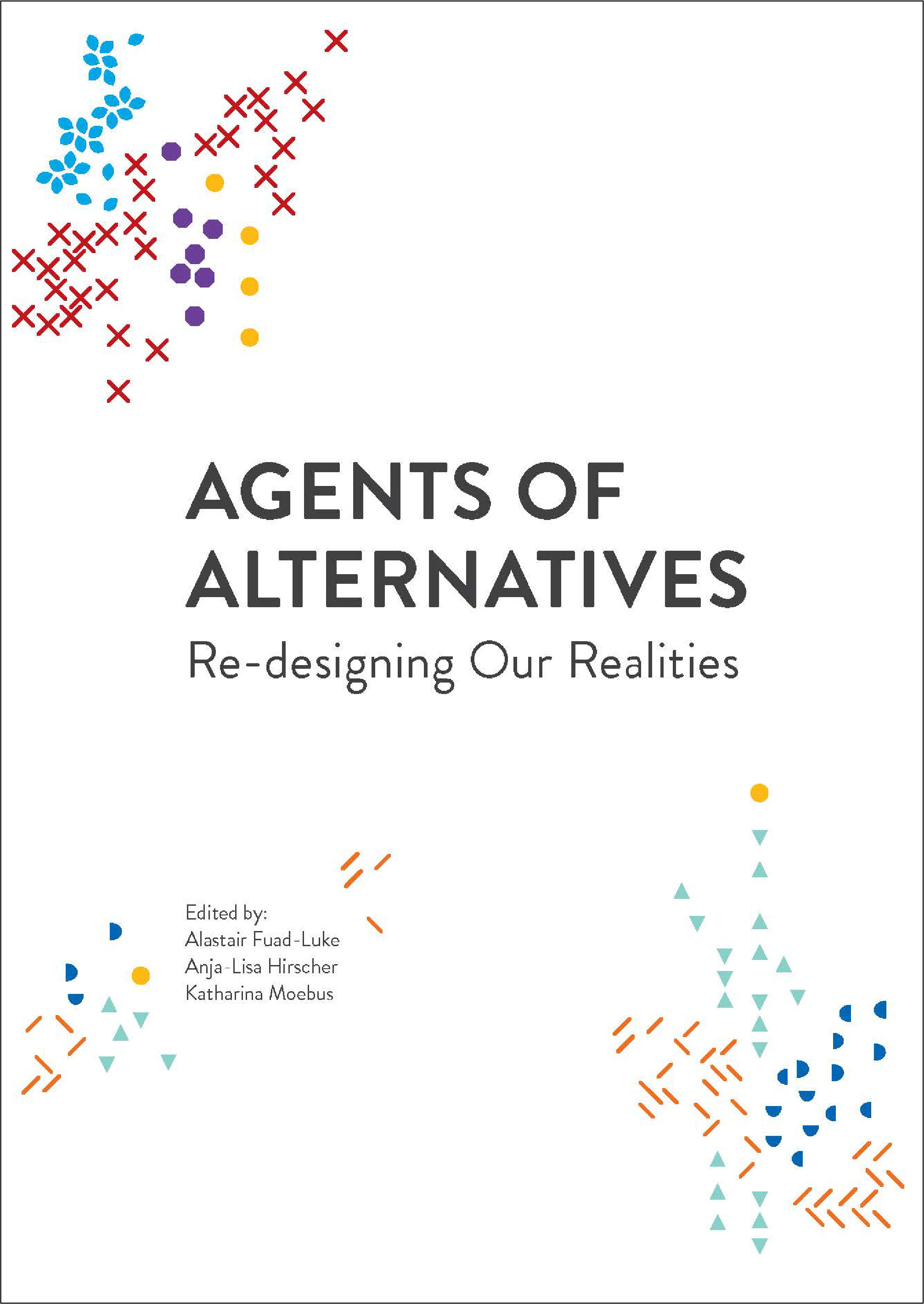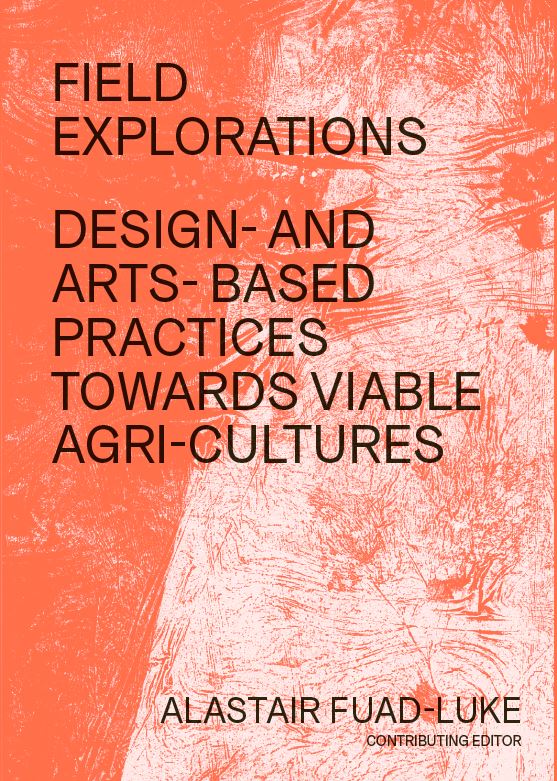
Field Explorations. Design- and arts-based practices towards viable agri-cultures (2022)
Alastair Fuad-Luke (contributing editor)
This anthology originates from a research project What Could A Farm Be? initiated by the editor, Alastair Fuad-Luke, supported by the Faculty of Design and Art at the Free University of Bozen-Bolzano, in the province of South Tyrol/Süd Tirol/Alto Adige in the north-east of Italy. Outputs from the project which coordinated with local small farmers, were diverse, including: experimental products utilising waste sheep´s wool and dyes from local plants; many workshops exploring possibilities for new forms of orientation and production; and, a network of academics, practitioners, farmers and other rural professionals called muu-baa https://www.muu-baa.org/ .
Field Explorations includes practices from South Tyrol but widens the scope to European and North American designers and artists who engage with alternative agri-cultural practices that challenge the hegemonic practices of global agribusiness. The anthology is organised in four sections: Farming Practices, Alter-Native Practices, Explorative Practices (Selected Case Studies); and Practices of New Entanglements. A summary of these practices is given by the editor under the title of ´Practicing Anticipatory Assemblages for Near-Future Farming´.
Contributors: Koen Vanmechelen, Erica Boito, Elisabetta Rattalino, Cynthia Hathaway, Kris Krois, Amy Franceschini of Futurefarmers, Fernando Garcia Dory of Inland, Sophie Krier, Roberto Gigliotti of Lungomare, Lisa Mazza and Simone Mair of Bau, Roberta Raffaeta, Alexandra Fruhstorfer, Center for Genomic Gastronomy (Zack Denfeld, Catherine Kramer and Emma Conley) and Elisabeth Tauber.
Technical information:
– first edition, 500 copies
– published by Agents of Alternatives e.V., Berlin, Germany
– 288 pages, full colour, 24 x 17cm
– includes essays, interviews, conversations and case studies
– language – English
You can order a physical copy of the book by dropping us an email at afuadluke(at)gmail.com.
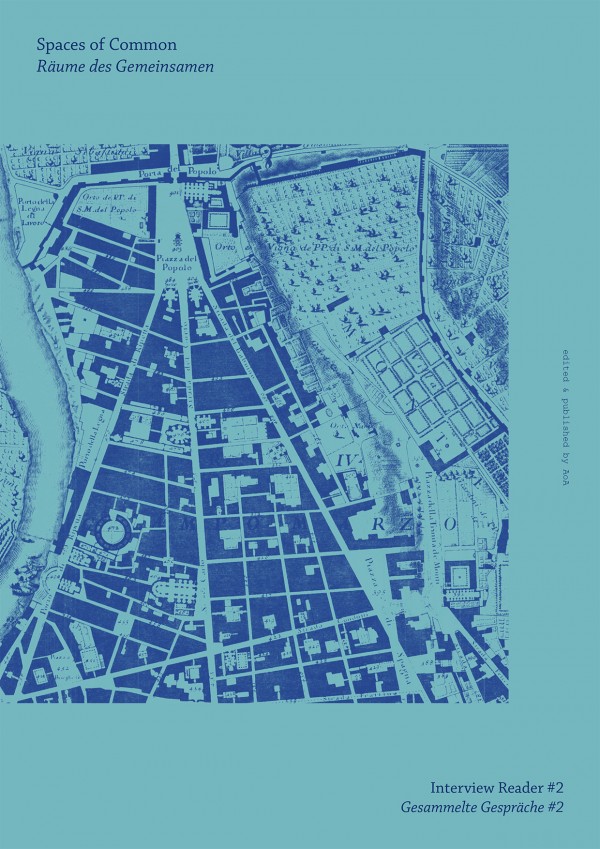
Spaces of Common. Interview Reader #2 | Räume des Gemeinsamen. Gesammelte Gespräche #2 (2022)
created by Katharina Moebus
This interview reader is the second in a row of a series published along the way of the practice-based design research project ‘Economies of Commoning’, which sets out to explore practices, value systems and economies that are based on the commons and taking shape as spaces of dissensus in the urban context. It contains interviews with a range of women who are all active in spatial (re)production, teaching and research in diverse urban and rural contexts: architects Dagmar Pelger, Doina Petrescu, and Kim Trogal as well as transformation researcher Andrea Vetter. The reader is both in English and German.
It is available for free download here.
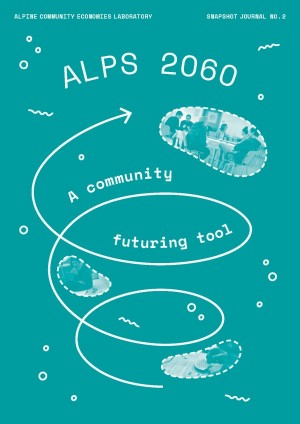
Alps 2060. A community futuring tool. (2021)
created by Bianca Elzenbaumer
A new publication in the Alpine Community Economies Laboratory series is out. This issue presents a workshop format developed to engage people in visionary and transformative ways to approach the various issues of regional development in the Alps.
The workshop format aims to bring together citizens, policy makers, local administrators and researchers to envision desirable ecologically and socially just futures, starting from the area that they live in. The workshop works to unearth desires, connect people and make visible what is already possible (and maybe even already happening) today that can move us towards desirable futures. The workshop supports actors in formulating together a bigger vision of what kinds of futures they might want to construct, while also breaking this bigger vision down into the various elements that compose it, thus supporting immediate transformative action. It has been developed and tested in the Vallagarina Valley in the Italian Alps between 2019 and 2020.
It is available for free download here.
Common(Lab) Zine 2018-21. 3 years of (un)learning (2021)
created by Common(s)Lab
This zine documents the diverse processes, formats, and learnings from the past three years of Common(s)Lab, a community project in Schillerkiez, Berlin-Neukölln. The project, initiated at the end of 2017, was conceived as an emancipatory space to explore and foster more communal, convivial and caring ways of living, thinking and acting together. The zine outlines the various formats and methods that were adopted over the past three years and brings together an array of resources and instructions — which emerged and evolved thanks to the many people who became part of Common(s)Lab — that might serve as an inspiration and resource for similar projects or activities elsewhere.
You can download it for free here.
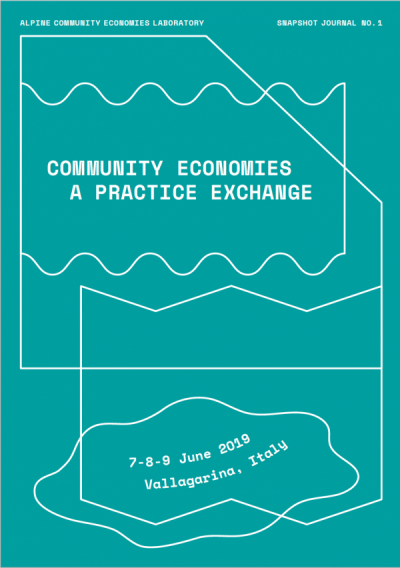
Alpine Community Economies Laboratory, Snapshot Journal No. 1
Community Economies. A Practice Exchange (2020)
created by Bianca Elzenbaumer
We have another new publication to announce for this year: the first document related to the research project ‘Alpine Community Economies’ developed by Bianca Elzenbaumer/Brave New Alps. The Alpine Community Economies Lab uses participatory design methods and feminist economic theory to support Alpine communities in addressing concerns of sustainable socio-economic development. From a community-based research space in Rovereto (Trentino, Italy), a diversity of civic actors and policy makers are engaged in a collaborative activity of imagining and enacting economies that have both people and the environment at their core. This publication gives an insight into the topics discussed and the methods for collective thinking used during a three day gathering that took place in Italy in spring 2019 and that brought together community economies practitioners and theorists.
It is available for free download here. Enjoy!
Economies of Common/ing. Interview Reader #1 | Ökonomien des Gemeinschaffens.
Gesammelte Gespräche #1 (2020)
created by Katharina Moebus
This reader is the first in a row of a series published along the way of the practice-based design research project ‘Economies of Commoning’, which sets out to explore practices, value systems and economies that are based on the commons and taking shape as spaces of dissensus in the urban context. This research is based on the firm belief that such emancipatory spaces have a huge potential to contribute to the societal transformation towards more desirable futures. The reader contains interviews with: historian and economist Friederike Habermann, economic geographer Katherine Gibson, activist and speaker Tobi Rosswog, and sociologist Christa Müller & publisher Karin Werner.
It is available for free download here.
Agents of Alternatives – Re-designing Our Realities (2015)
edited by Alastair Fuad-Luke, Anja-Lisa Hirscher, Katharina Moebus
As our first project, AoA independently published the co-edited book ‘Agents of Alternatives – Re-designing Our Realities’ in 2015; an open book exploring the visions, actions, tools and impacts of change agents, thinkers and ‘happeners’ (those who make things happen!). It shows the creative processes and tools for designing positive societal transitions. These transitions are revealed by showing the new hybrid relationships being forged between alternative approaches to learning, living, making, socialising, thinking and working.
Agents of Alternatives enables professionals, amateurs and citizens to understand the rich possibilities of creating and designing together in open, participatory and imaginative ways. It provides an integrated and systemic collection of case studies, essays and interviews from well-known international contributors and local activists, collated by an international team of editors.
You can find more detailed info here.
You can read a free pdf here under a Creative Commons license (CC BY-NC-SA 4.0). Hard copies of the book are sold at the book shop pro-qm in Berlin, also in their online shop.
